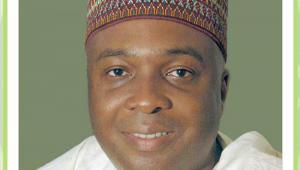The UK government, in response to a UK scrutiny committee report, disagreed with many of the suggestions aimed at making ‘official development assistance’ money better targeted and transparent.
It did not support the idea that the secretary of state for international development had more scrutiny and sign off of money spent outside her department, as recommended by the International Development Committee in a report in June.
The UK select committee had warned some cross-government spending marked as ODA did not have a clear poverty reduction target, such as funds from the foreign office to the Chinese film industry. Aid should be more focused on helping the world’s poorest, the MPs said.
Civil society organisations were unhappy the government had not accepted that there should be more focus on poverty reduction with all UK aid money spent outside DfID.
In 2017, roughly 18% of ODA was spent by departments other than DfID, primarily the Department for Business, Energy and Industrial Strategy, the foreign office and the home office.
Romilly Greenhill, UK director of the anti-poverty campaign group One Campaign, said the response failed to adopt the committee’s proposals that would have “improved aid spending by all parts of government”.
Greenhill said: “Like going to a doctor but not taking their health advice, it’s unwise of the government to not take the IDC’s recommendations fully on board.
“For aid to be the real-deal, it must be poverty focused, effective and transparent. When UK aid meets these criteria it makes a huge difference to the lives of millions and enables us to remain a global leader in the fight against poverty.”
Katy Chakrabortty, Oxfam’s head of advocacy, said: “It is disappointing that the government fails to make basic transparency standards and a real focus on poverty reduction a condition for departments besides DfID to manage more aid, potentially undermining Penny Mordaunt’s pledge to ensure that ‘UK aid cannot be better spent’.”
Claire Godfrey, head of policy and campaigns at Bond, a network of UK NGOs, said: "It’s disappointing that the government has buried its head in the sand in response to such explicit criticisms of aid spent by departments other than DFID, particularly in light of the secretary of state’s previously welcomed assurance that she would ensure aid money "cannot be better spent".
"The IDC’s recommendations provided DFID with the perfect opportunity to hold other government departments to account for their spend of UK aid."
The government, in its response yesterday, accepted some of the recommendations, including that DfID should assist other departments with ODA-administration and partially agreed that poverty reduction should be the primary objective for ODA spending.
The June report called for further transparency of how UK aid money is spent by other departments and to let the Independent Commission for Aid Impact scrutinise the funds spent across government.
But the government said in the response that “due to the highly sensitive nature” of the Conflict, Stability and Scrutiny Fund – which also spends ODA – some details could not be published.
The UK enshrined a target of 0.7% of its gross national income to be spent on ODA – a figure recommended by the United Nations – into law in 2015.
The legislation states that all ODA spending, including that not delivered by DfID, should have the goal of ending extreme poverty.







